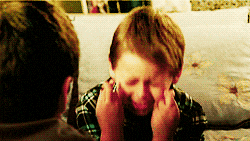The meaning behind hope
Plus, what happens when you climb the social ladder?
BRAIN WAVES
Hope floats. Hope isn’t just a warm fuzzy feeling — it can also give you a sense of purpose. A new University of Missouri study shows that among a handful of positive emotions, hope most strongly predicts a sense of meaning in life. Researchers analyzed data from more than 2,300 people across six studies and found that hope consistently stood out as a key contributor to feeling that life matters — more so than happiness, gratitude, or amusement. As co-author Laura King put it, “Experiencing life as meaningful is crucial for just about every good thing you can imagine in a person’s life.” So go ahead, lean into hope.
Samesies. It’s common for first-generation college students to carry some guilt about climbing the social ladder, but they can take solace in knowing that doing so doesn’t fundamentally change who they are. A new study found that core personality traits like extraversion and conscientiousness remain largely stable over time for first-generation university students. Researchers tracked people from adolescence into their thirties, comparing those who were the first in their family to attend university with peers who didn’t go to college. While the university attendees showed a gradual (and modest) decrease in risk-taking, their overall personality development was similar to those who didn’t attend. This suggests that higher education might nudge certain behaviors, like risk aversion, but it’s not like it rewrites your personality blueprint. As the researchers put it: “Educational mobility may reshape opportunities and perspectives without fundamentally changing who you are.”
Child’s play. If you’re a parent or a teacher, you’ve probably wondered how to balance play and safety for the kids in your care. You don’t want to put children in danger, but you also don’t want to rob them of the joy of exploration. How do you find balance? Listen to learn more.
ON THE HIDDEN BRAIN PODCAST
Win Hearts, Then Minds + Your Questions Answered on Identity and “Covering”: There’s a saying that’s attributed to the Dalai Lama: in the practice of tolerance, one’s enemy is the best teacher. It’s a nice idea. But when people don’t share our values, it’s hard for us to tolerate theirs. This week, we bring you a favorite episode with sociologist Robb Willer. We discuss the common mistakes we make in trying to persuade others of our point of view — and how to break out of our echo chambers. Then, Kenji Yoshino answers your questions about how we hide our true selves.
ON THE MY UNSUNG HERO PODCAST
Karen de Boer’s Story: As a college freshman, Karen was sometimes inconsiderate to her hallmate, Pam. So when Karen missed the bus to her choir performance, an hour away, she was surprised — and moved — when Pam came to her rescue.
Don’t forget to send us the story of your unsung hero! Record a voice memo on your phone and email it to myunsunghero@hiddenbrain.org.
HIDDEN BRAIN ON TOUR
Have you heard? Hidden Brain is on a nationwide tour! Host and creator Shankar Vedantam brings seven key insights from the first decade of Hidden Brain to the stage. Come share your own thoughts and ideas with Shankar and other fans of the show. Portland and Denver, there’s still time to grab your tickets for this weekend’s shows!
MIND GAMES
Sam's mother has four children:
April, May, June, and ...
What’s the name of the fourth child?
LAST WEEK’S PUZZLE
A tree doubled in height each year until it reached its maximum height over the course of ten years. How many years did it take for the tree to reach half its maximum height?
The answer: Nine years
A MOMENT OF JOY
You’re happy. You get a lot of money. You get a private jet.
Have an idea for Hidden Brain? A story you want to share with us? Send an email to ideas@hiddenbrain.org. Listen to us on Spotify, Apple, Amazon Music or your favorite podcast platform.


